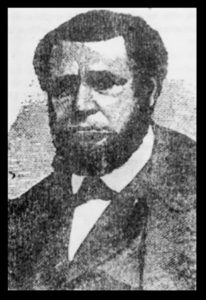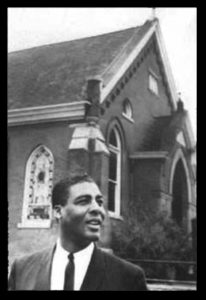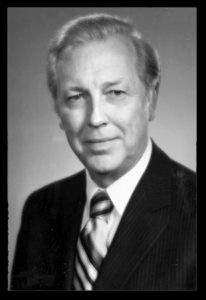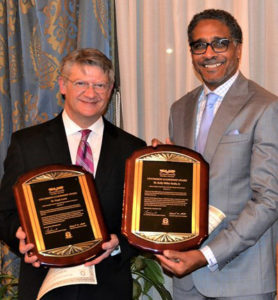Note: This article originally appeared on ethicsdaily.com on August 6, 2018. Rerun with permission.
by Frank Lewis, senior pastor
Four pastors—two black and two white—walked into a bar. Well, not exactly, but close.
We had breakfast together, along with five or six men from both churches—First Baptist of Nashville and First Baptist of Capitol Hill. We wanted to find a way to do something together that might demonstrate the gospel. We wanted to offer our city hope.
We discussed some things that might work, but the easiest seemed to be a night when we could sing each other’s songs led by a combined choir from both churches. “A Night of Spirituals” was born.
Our history is shared, but it has not always been easy. Prior to the U.S. Civil War, members of First Baptist of Nashville owned slaves.
Twenty years after our church was started, an estate gift left by one of our members included a 16-year-old slave named Nelson Merry. That’s right, our church owned a slave.

Nelson G. Merry, first ordained black man in Nashville and founding pastor of The First Baptist Church of Capitol Hill. Photo courtesy of TN State Library.
Nelson came to faith and was taught to read and study the Bible by several men in the church, including Sam Davidson, the assistant pastor.
He was freed almost immediately after the estate gift was received and in 1853 Nelson Merry became the first ordained black man in Nashville, Tennessee, and became the pastor of The First Colored Baptist Church in Nashville, which is today The First Baptist Church of Capitol Hill.
Today, the church sits on the corner of Rosa Parks Boulevard and Nelson Merry Street in the shadow of our state capitol.
During the civil rights era of the 1950s and ‘60s, First Baptist of Capitol Hill was led by Kelly Miller Smith.
He was a strong presence in the city of Nashville and gave faithful leadership to a church who named among her membership a number of college professors from nearby Fisk University, Tennessee State University, and Meharry Medical College, as well as other members of influence in the community.
Smith was a friend of Martin Luther King, Jr. While pastoring, Smith founded the Nashville Christian Leadership Council, which organized and supported the lunch counter sit-ins, elevating the conversations of racial inequity and social injustice in our city.
At the same time, just blocks away, H. Franklin Paschall was the pastor of First Baptist of Nashville.
He carefully guided the congregation (and the Southern Baptist Convention) during the days of lunch counter sit-ins, integration, and major societal change.

Kelly Miller Smith, Sr. in front of First Baptist Capitol Hill in 1964. Photo courtesy of Vanderbilt University.
Paschall and Smith maintained a professional and collegial relationship during these years and attempted a pulpit exchange on more than one occasion.
For reasons that are not clear today, those attempts were difficult to carry out consistently. Looking back, we can imagine why.
I first met Kelly Miller Smith, Jr. in 1999 when we both served as members of the trustee board of Belmont University.
It was a cordial meeting, as I recall the more seasoned board member welcoming me to my first meeting on the board.
He then told me of the connection between our churches, which prompted me to reach out and meet the new pastor serving the Capitol Hill congregation at that time, Victor Singletary.
For the next five years, our two churches began to enjoy a renewed friendship as we gathered together for Good Friday services and other times of worship and fellowship.
Fast forward to 2010, about a decade from our first meeting, and Kelly Miller Smith, Jr. was asked to return to the church his father led so well until his death in 1984, as their new senior pastor.
A few years into Dr. Smith’s ministry, our nation was made painfully aware of the continued struggles with racism by way of events such as the Trayvon Martin shooting, the civil unrest in places like St. Louis, and the repeated instances where black men were being killed or incarcerated at a higher rate in our nation than white men.

Dr. H. Franklin Paschall, Pastor of First Baptist Church Nashville from 1956-1983.
These and other events prompted a conversation between us that went something like this: “We must find a way for our congregations to start doing things together so that when—not if—something happens in Nashville, our churches can be a voice of peace, our members can be an example for the gospel, and possibly we can be a resource of spiritual strength to our city.”
We both felt it, and both contributed to that conversation.
We brought men from both congregations together to share a meal and discuss options about how to engender a sense of fellowship in which our stories and our lives could be shared.
We continue to work on making this happen, but from these early conversations, we felt that a night of shared music might be one of the ways to move our congregations forward.
As these plans were still being made, Dr. Smith and I had lunch one day and discussed the idea of a pulpit exchange.
Because our choirs were going to combine for a night of “spirituals,” we decided it would be good for both of our churches to hear the heart of the other pastor that morning.
It was very simple. We each chose our text and sermon topics, we informed our leadership of the plans, and then we looked forward to the day.
Our local newspaper, The Tennessean, got wind of the exchange and the concert.

In December 2018, Frank Lewis (left), pastor of First Baptist Church in Nashville, and Kelly Miller Smith Jr., pastor of First Baptist Church Capitol Hill in Nashville, were honored for their racial unity leadership by Williamson College, which established two $10,000 scholarships in their names. BP Photo / Diana Chandler
Photographers showed up at both churches to take pictures, and the religion editor, Holly Meyer, interviewed us for the story.
To our surprise, the story made front-page news a few weeks later in an article titled “Open Doors, Open Hearts.”
It was a gift to our city to read about two congregations without a scandal being involved!
Holly did a great job with the story because she understood how important it was. And it is. It needs to be taking place in more cities today.
Dr. Smith and I shared a meal after the story to answer the “What’s next?” question that everyone is asking as both of our congregations enjoyed the day.
We believe that when you share a meal, you share a life. With this in mind, our next gathering for our churches will be over a meal.
We will probably reach into the deep bench both of us have in our churches and enlist people to share personal stories about this long journey marked by the highs and lows, the hopes and fears, the good and the bad of racial and cultural differences that we both experience, yet often perceive differently.
